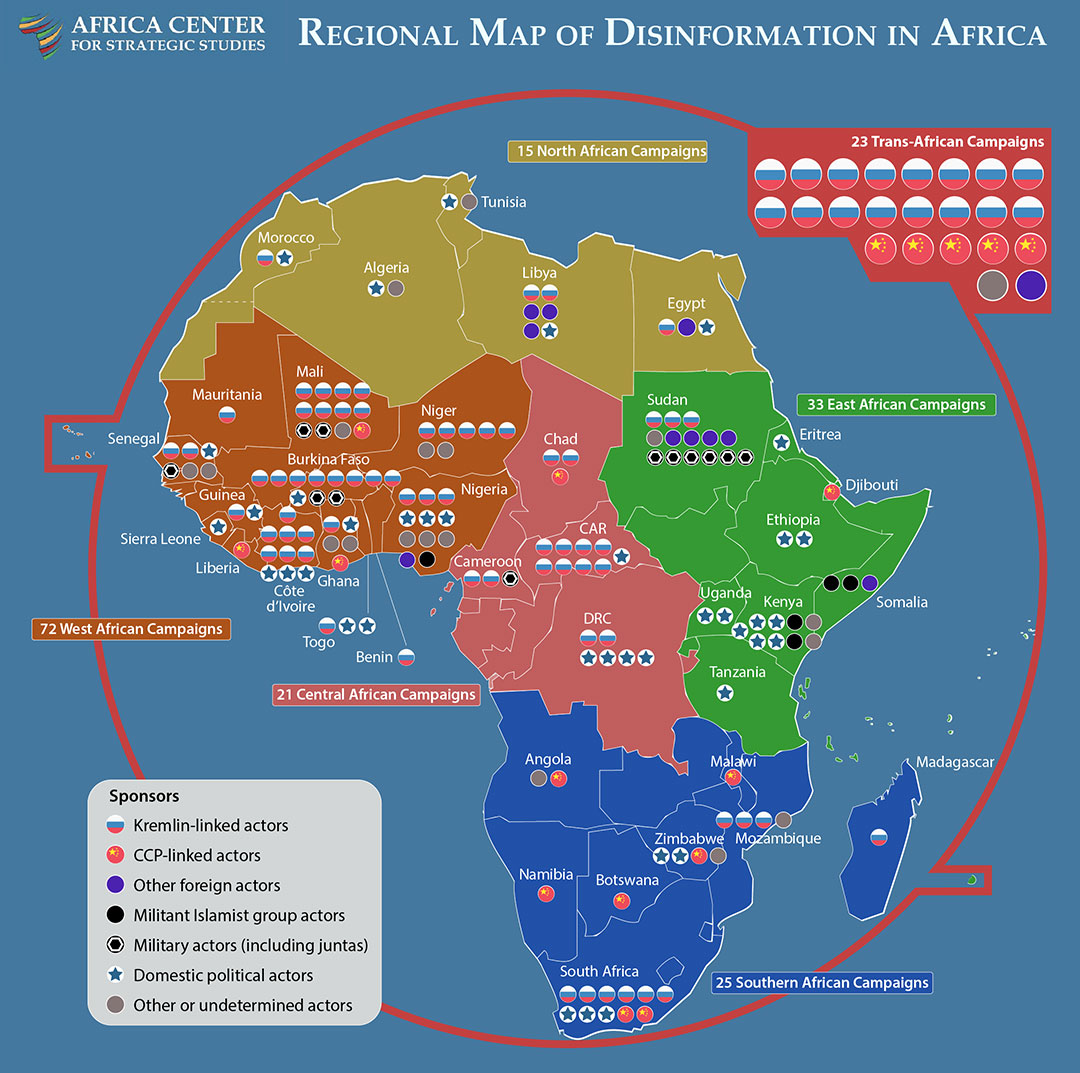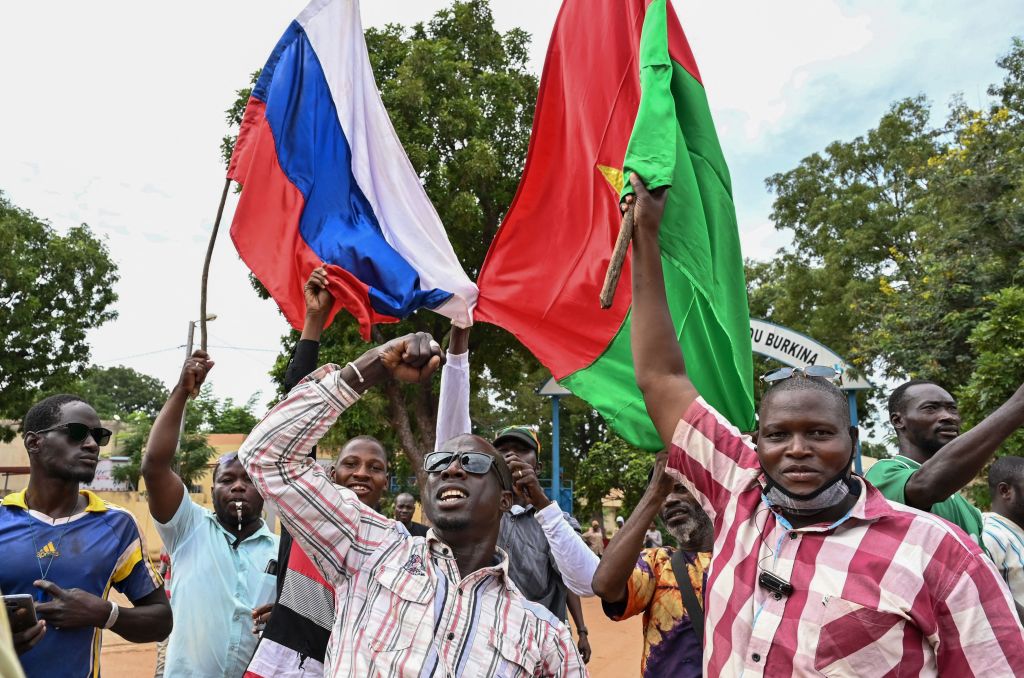ADF STAFF
A new report shows disinformation is having a major impact on the lives of Africans, as digital campaigns are weakening stability, security and freedom.
Russia stands out as the chief source of disinformation in Africa and is well-known for aggressively using social media and publishing fake news to gain influence. It is sponsoring 80 documented campaigns in more than 22 countries, accounting for nearly 40% of all disinformation campaigns in Africa.
The figures come from a new study by the Africa Center for Strategic Studies (ACSS), which documented 189 disinformation campaigns on the continent — nearly quadruple the number reported in 2022.
“Given the opaque nature of disinformation, this figure is surely an undercount,” the March 13 report stated. “Actors driving sophisticated disinformation attacks on African media ecosystems are taking advantage of the rapid expansion in the reach and accessibility of digital communications to reshape the continent’s information systems at scales and speeds not possible through traditional analog platforms.”
Africa is home to an estimated 600 million internet users, including 400 million who are active on social media. Africans are some of the most avid users of social media platforms, as users in Kenya and Nigeria are among those spending the most time there.

Internet penetration rates vary, from 7% in the Central African Republic to 51% in Nigeria, according to a report by the policy think tank Atlantic Council and the Digital Forensics Research Lab. Multiple actors, foreign and domestic, are involved in the surge of information warfare against Africans.
“The major actors are Russia, China, and the Gulf States [Qatar, Saudi Arabia and the United Arab Emirates] in that order,” ACSS research director Joseph Siegle said in a March 23 interview with Voice of America. “Approximately 60% of all of the documented campaigns we’ve identified are foreign-sponsored. They do this because it’s an inexpensive but powerful asymmetric tool for gaining influence.”
With its goals of state capture, resource extraction and weapons sales, Russia has a keen interest in undermining democracy and supporting military juntas.
It has pushed fake news and propaganda in at least 19 African countries, according to the report. Its 80 disinformation campaigns have reached millions of users through tens of thousands of coordinated fake and sponsored webpages and social media posts.
As an example of Russia’s reach, two prominent disinformation influencers have a combined social media following of more than 28 million users. Their content is amplified daily by a vast network of hundreds of Russia-linked accounts and pages. It is targeted to audiences in locations strategic to Russia’s interests, such as the Sahel.
“By shaping narratives about what’s happening on the ground, this influences how the public interprets events and has direct implications for governance norms and policies,” Siegel said.
“Many of these campaigns are aimed at propping up military juntas or authoritarian governments with whom these foreign actors have allegiances, and this enables them to assert more influence.”

